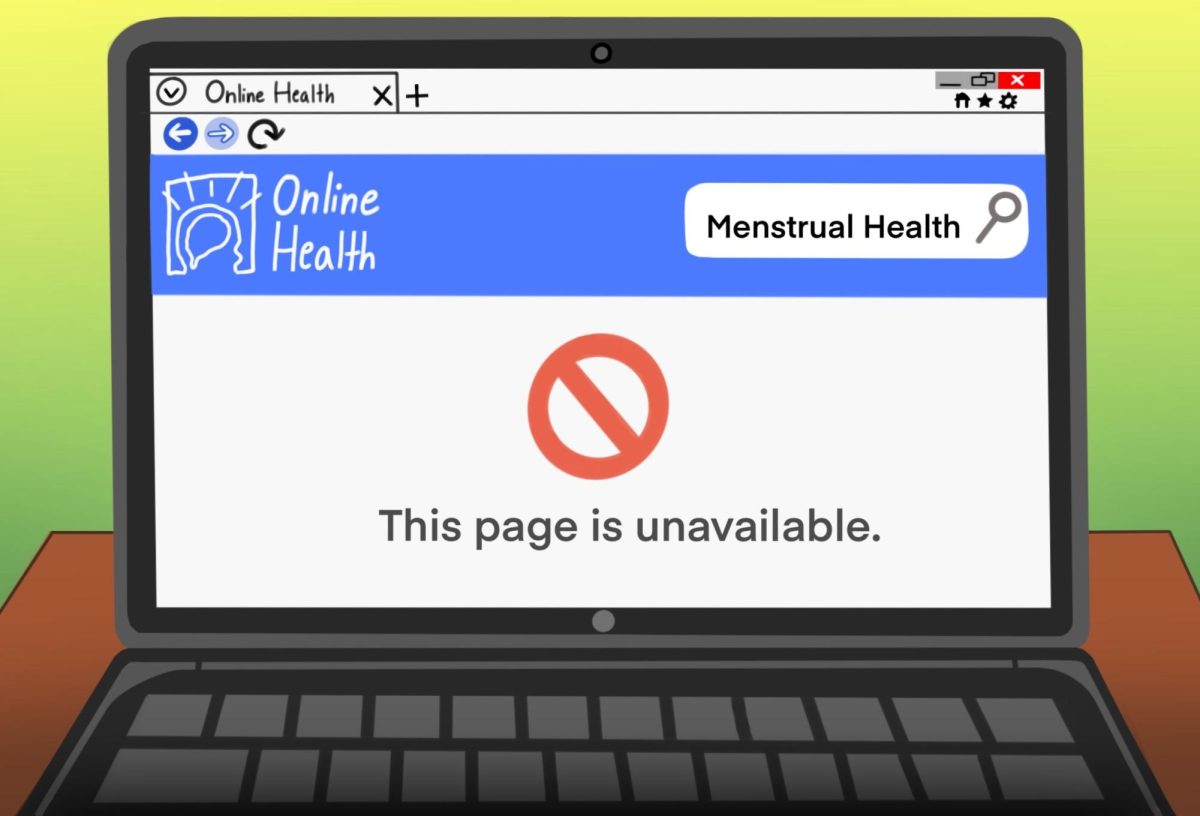Instead of cartwheeling on grassy lots or waiting their turn for the swings, today’s tween girls are opting for the playgrounds of malls and social media.
Kids aged nine- through twelve-years old — the tweens of Generation Alpha (the generation born between 2010 and 2024) — are consuming, and even creating, content more appropriate for sixteen- to eighteen-year-olds, and partaking in trends that are dangerous for them long-term. They stroll into Sephora with Stanley cups in hand and make TikToks amongst shelves of mini-skirts and graphic tees instead of enjoying typical childhood staples like bracelet-making, kickball, and that “cringe” phase unique to preteens.
This drastic shift in tween behavior begins with the parents who supply their kids with iPhones, iPads, and un-earned allowances, ignorant of the effects of their kids’ indulgences. They’re seemingly unaware that their Gen Alpha children are comparing make-up prices at Ulta instead of browsing the YA section of Barnes and Noble.
This enablement creates materialistic and technology-obsessed tweens.
And these children do not seem to care about the consequences: When they see Gen Z teens and advertisers promoting trending skincare products, they either don’t understand, or just outright ignore, the consequences. (Young girls spending money on anti-aging products and makeup in Sephora even has a name: “Sephora Kids.”) The consequences — damaged skin and unrealistic beauty standards — don’t seem to matter to these kids.
But 12-year-olds indulging in expensive makeup is just one example of Gen Alpha being negatively influenced by social media. “iPad Kids,” another label for Gen Alpha tweens, describes their short attention spans and the ubiquitous iPad stuck in their hands with little-to-no internet restrictions. These parent-provided iPads are sometimes used as a substitute for actual parenting, and as a result of the excessive screen time, they create obsessions with trending items like Stanley cups and Drunk Elephant skincare.
A terrifying statistic: A third of the 150 million American TikTok users are age fourteen and under. So it’s no wonder that these unhealthy habits arise from excessive social media engagement. Since parents provide their kids with the technology (87% of U.S. teenagers have iPhones) and unmonitored social media, they are responsible for their children’s exposure to sexual content, violence, cyber threats, and other inappropriate material.
By neglecting the consequences of substituting technology for guidance in the social, emotional, and intellectual development, parents abandon Generation Alpha to the liminal space between childhood and teenage-hood with only one thing to turn to: technology and internet-fueled trends.
When the sparkles and frills of adolescent-appropriate Justice clothing have been driven out of malls, once-popular middle school reads like Percy Jackson have not been replaced by anything as beloved, and Gen Alpha is left with no proper role models, they learn to mimic the mature behaviors from social media and its influencers, resulting in the abandonment of the childhood staples of past generations.
So, where is the content about adolescents and for adolescents? Where are the parents who are supposed to be guiding their children in this uncertain stage of life? When the tween generation is growing up in a world where online media defines and shapes culture and societal norms, yet there is little age-appropriate content for them to consume, we can’t blame them for growing up too fast.
Gen Alpha is a warning. If parents continue to leave this and future generations to iPads in their hands and social media brain rot in their heads, they will always be media-obsessed, trend-driven copies of teens.
Parents should consider if they really know what their tween is doing when they get dropped off at the Brea Mall, or how putting an iPhone and iPad in their child’s hands fuels technology addiction and pushes them into adulthood.
Gen Alpha is a glimpse into the consequences of growing up with unmonitored technology at a child’s fingertips.
If parents fail to monitor their children’s internet use, if Gen Z doesn’t set a better example; and if corporations don’t more stringent restrictions on social media apps or create spaces for the youngest generations to play in, we risk handing our future over to a generation that is too media-addicted to ever act their age.












Jennifer Stark • Aug 3, 2024 at 7:57 am
Part of it is that the world has become a digital technology based society. That is their and our future.
I think this article is very harsh. My Alpha tween does the skin care with my guidance, but also makes bracelets, draws and paints. I see a lot of her friends who are being raised by Millenials, over active in activities, sports, music etc. I’m Gen X raising an Alpha. I feel like the Alpha generation all 2.5 billion of them are the generation that will balance our world. Create unnoticed equality. They will not carry prejudice or judgement. They will be the best generation yet.
Wendy • Aug 25, 2024 at 6:52 am
I’m another Gen X raising an alpha. I feel the same as you. When my daughter asked for make up this year, I said yes, but that was listen to an expert, as I know nothing about make up myself. I took her to a Macy’s where she got excellent advice from one of their employees. She was walked through the importance of cleaning brushes, how to only accent certain parts and not to cover up her “natural beauty.” They recommended skin care and SPF coverage.
My daughter doesn’t have many restrictions on the Internet, but I have an open door policy about discussing things, and I ask her to share with me what she watches. I know there’s content that’s not “age appropriate” but I was reading Stephen King at her age without any guidance from my mother
Josephine Warner • Jun 16, 2024 at 12:14 pm
I’m a young millennial(1994), I would be told to “act my age” because I didn’t grow up fast enough in people’s eyes. At that age, I didn’t want to wear make up or bras(Still don’t but I’ve given in) or any of that stuff and adults complained. Now kids are told they’re not acting their age because they ARE doing all that stuff.
Social media has definitely effected this new generation, but it seems to me that adults just aren’t happy with anything young people do. Something’s always wrong.
Ash • Jun 14, 2024 at 9:44 am
Parents are married to their jobs. Inflation is high. You have to make that money for your kids to have a roof over their heads. I myself as a single parent have had to pull some 15 hour shifts. While working my aged mom watched her and kids takes phone while my aged parent naps. Also, goes on friends phone at school. Now people do tend to do some work at home jobs. That is definitely not even half the population though. Even so, it is hard to work at home and watch your kid. This is definitely also an economical problem.
BB • Jul 24, 2024 at 9:01 am
To the commenters citing their busy lives: so what? Social media is the problem. Let your kid be bored – that’s how they become creative. Or even turn on some television that’s age appropriate. They also make phones for kids that are just phones with age appropriate games but no free Internet access. Don’t make excuses, be a responsible parent.
Allison Blair • Jun 11, 2024 at 5:43 am
Great article! I think a lot of the indulgence started for those kids during Covid and it’s been hard to slow that down since.
Jachelle Sologuren • May 25, 2024 at 1:55 pm
Great article!
Joey • May 21, 2024 at 4:49 am
Found this article on Google, as an 11 year old this is true.
Doge • Aug 2, 2024 at 7:21 am
Same here
Cheryl Moore • May 20, 2024 at 4:57 pm
Well written article. Thank you! This stands out among SO many poorly written ones. Good to know that someone still knows how to write.
Viviana • May 11, 2024 at 7:34 pm
Agreed! As an older gen Z’er (almost millenial), I was an anomaly for my time in that my parents handed me a laptop at age 5. I regret them doing so! I believe it impacted my brain’s ability to sit down and focus on slower-paced things, like books. However, I must be grateful that TikTok did not exist then. It was hard for facing the content you describe even as a late teen. Can’t imagjne the damage it is doing to children age 9… All it feels I can do is tell my future children about what I went through so they don’t make the same mistakes. Found this article on Google BTW:)
Em • May 11, 2024 at 2:41 pm
Give me and Gen Alphas a dang break. Gen Z does the same thing. Guess what?? I’m a Millenial and my child loves playing, drawing being creative and gasp watching Netflix when it’s rainy outside or build puzzles. When I was her age my mom would drop us off at the mall (or stay there but let us have a little earned freedom of windows shopping in stores we liked). Every generation since the 80’s likes having fun hangouts to go see the coolest new stuff, whether it be skincare, clothes, books (we shop used books stores and thrift too because it’s fun) and new technology.
All of us just made it through a worldwide pandemic, I think kids wanting cute water bottles so they drink more water(Stanley cups I don’t judge just drink water!)and wanting to learn about skincare is awesome.
This is overall simplifying a much bigger issue and is pretty much another puff piece on why Gen alpha kids are the worst. I’d love to see how self righteous you are if you ever have kids. Gimme a break.